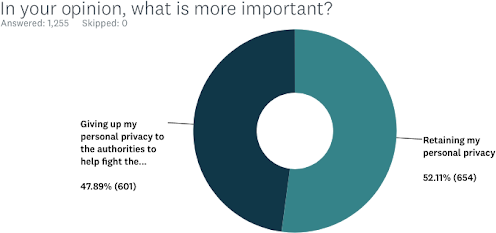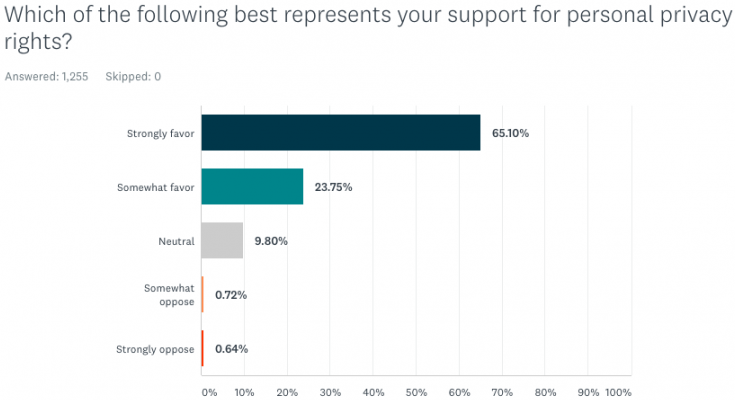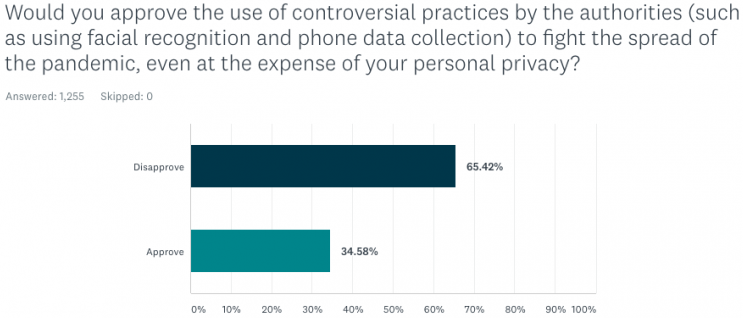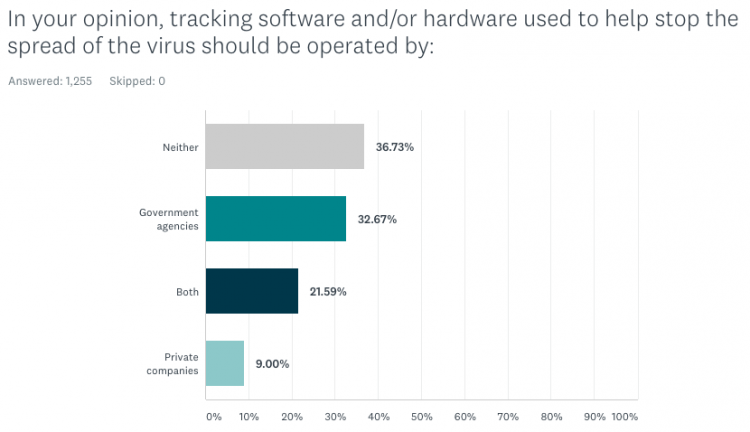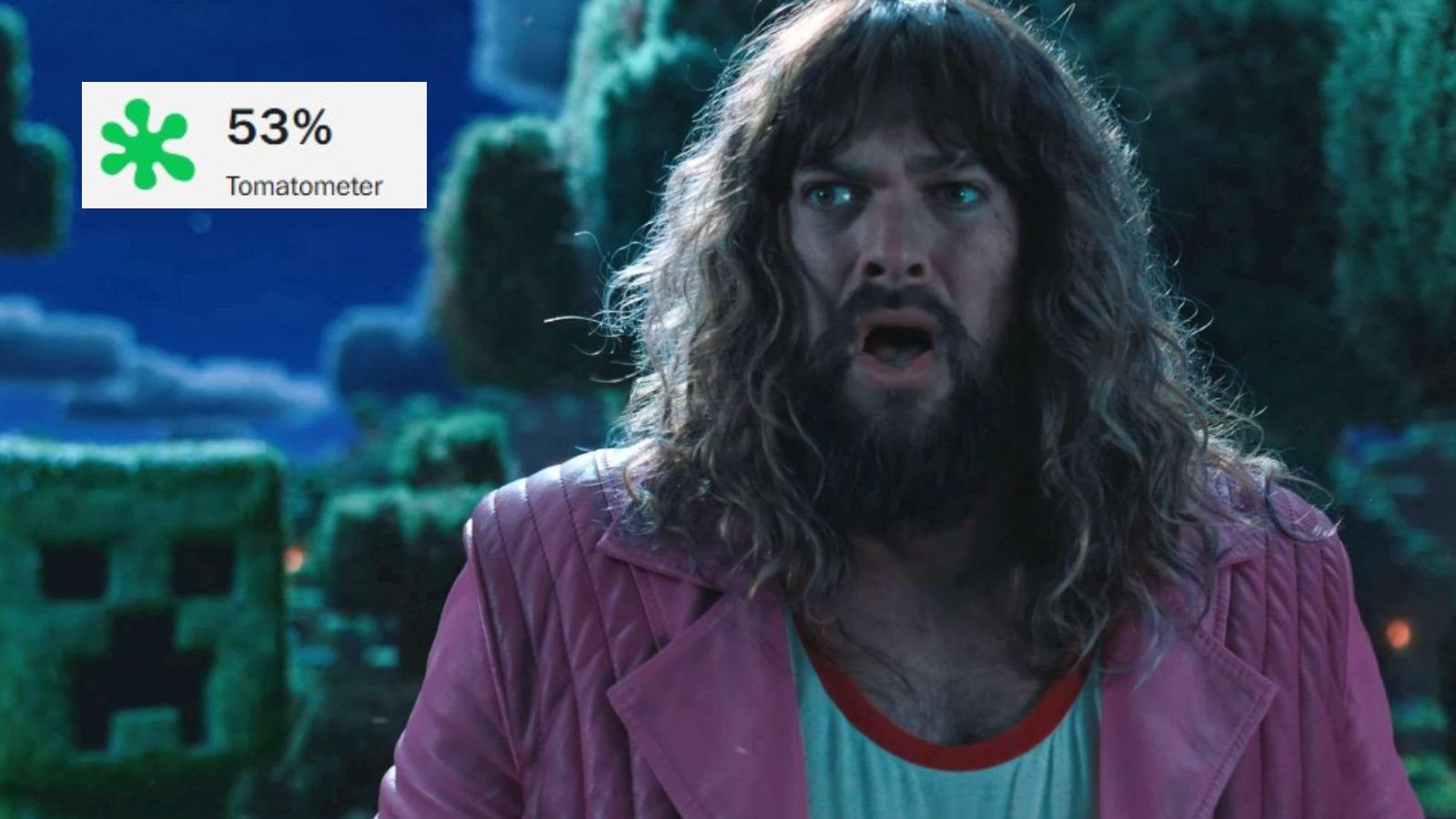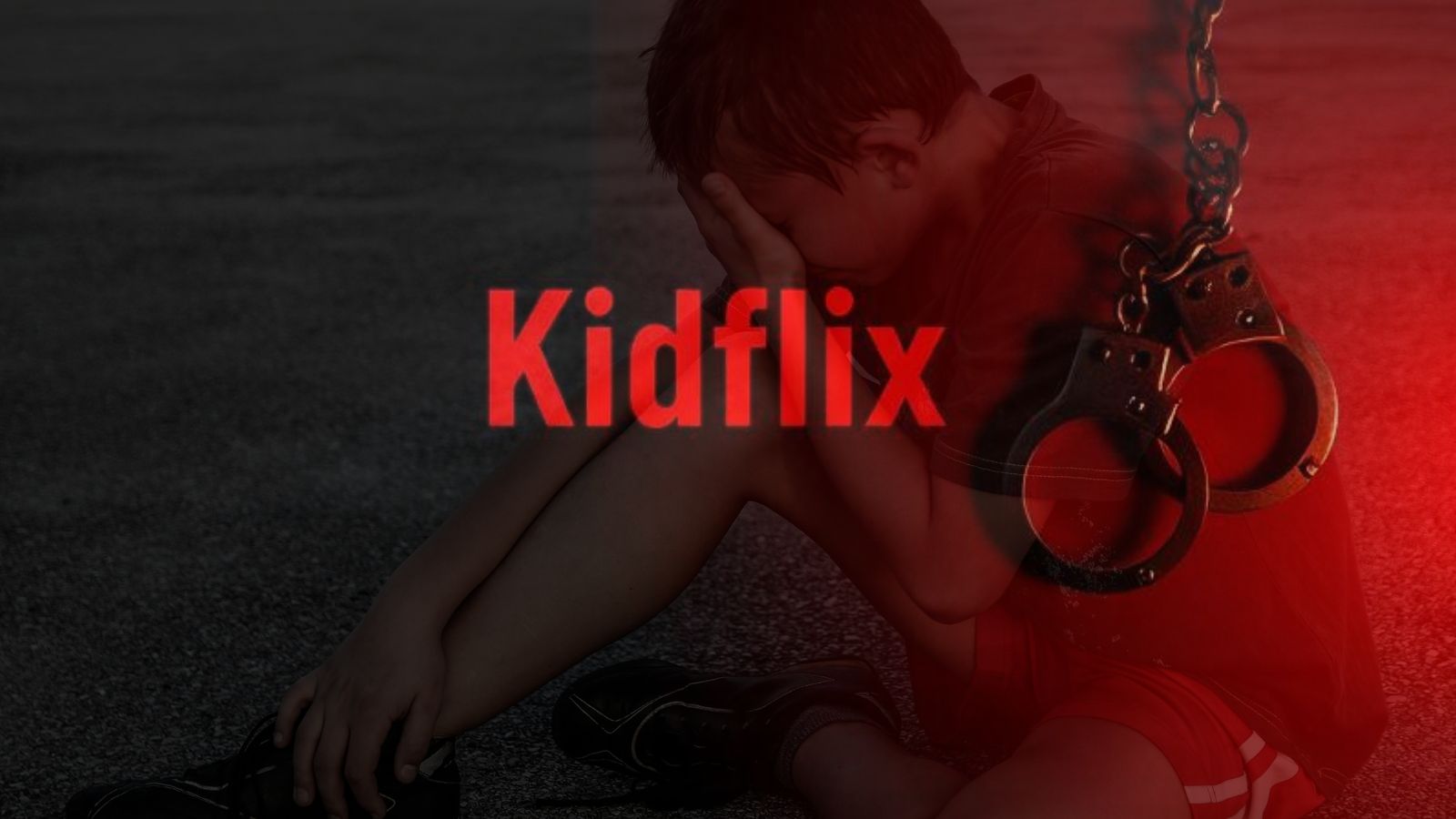
Are Americans Willing to Sacrifice Their Privacy for Safety? Here’s the Answer
- Americans aren’t willing to give up their privacy to help the authorities contain the virus spread.
- Most of them don’t trust private tracking platforms and would prefer tracking coming from the government.
- Most people fear that the existing tracking measures will stay after the pandemic has ended.
The Coronavirus pandemic has resulted in a massive uptick of government-adopted, and in some cases, imposed tracking measures - mainly through the use of smartphone apps. Some are willing to accept this unprecedented privacy-breaching phenomenon as it theoretically helps contain the spread of the Coronavirus. Others feel that no matter what dangers we’re facing, nothing constitutes a good enough excuse for the violation of their privacy rights. A recent poll on 1,255 American adults of diverse demographic characteristics aimed to figure out how the US citizens feel about this, and where exactly do they stand on the matter.
In what may come as a surprise, more than half of the respondents have stated that their privacy is more important than helping the authorities fight the virus spread.
Source: CyberNews
When asked how much their support privacy rights, the 1,255 survey participants were clear about it. An overwhelming 88.85% declared that they are in favor of privacy rights, and 65.1% self-categorized as “strong” supporters.
Source: CyberNews
The next question concerned the use of controversial practices, such as facial recognition and data aggregation from smartphone devices. A two-thirds majority expressed disapproval of that, but the percentage of those who would accept the practices mentioned above is pretty significant.
Source: CyberNews
Then there’s the difference between private and state-sponsored tracking apps. People showed their trust towards their government and national authorities more than apps coming from entities like Google and Apple, for example.
Source: CyberNews
Next, there is the question of how they view those who wouldn’t follow state orders in the case that the tracking would be made mandatory. Here, we have interesting results, as people would generally see the renegades negatively.
Source: CyberNews
Finally, respondents were questioned about how much they fear that this situation will lead to the establishment of permanent tracking measures. It is something that privacy advocates have been warning about for quite some time now, and it's a real risk that makes people worry. Almost four out of five of the survey participants feel that tracking retention is something probable, and a reason to worry about.
